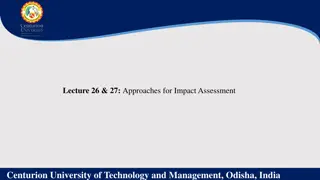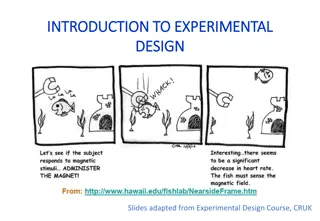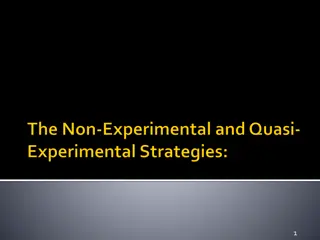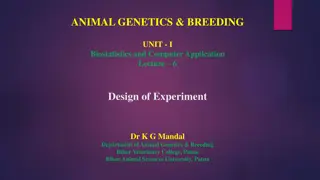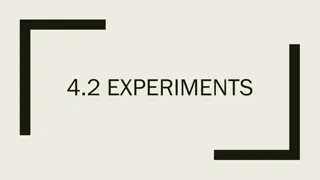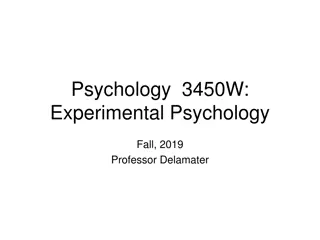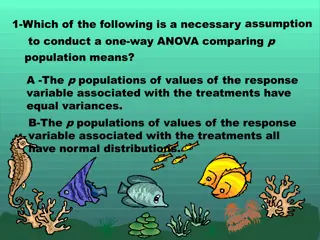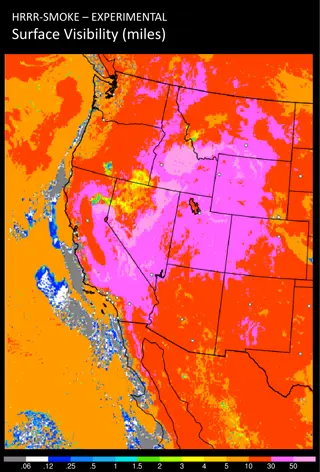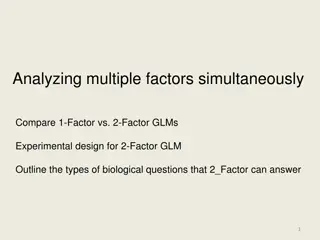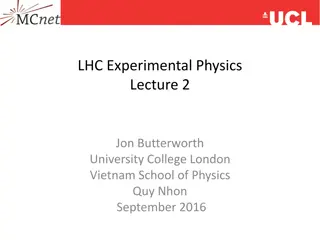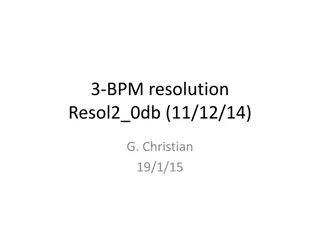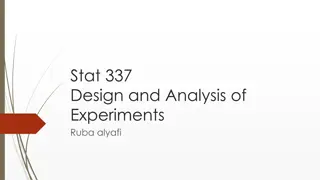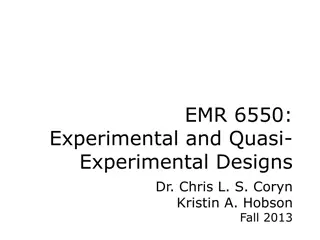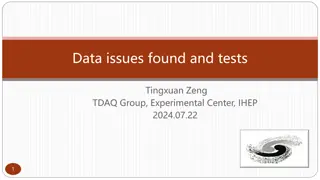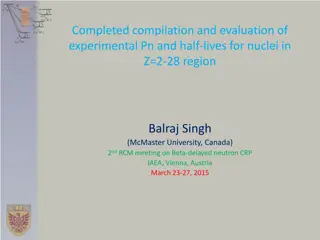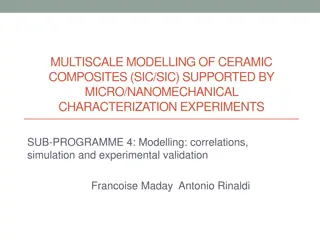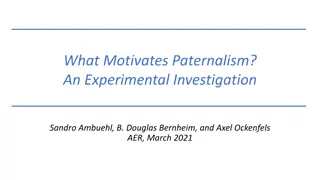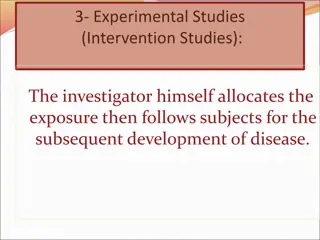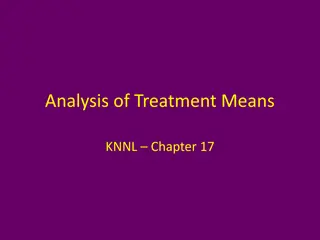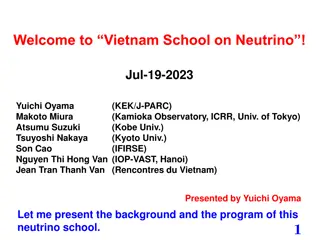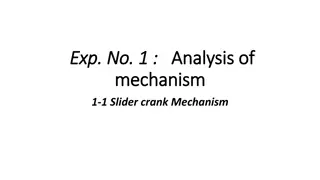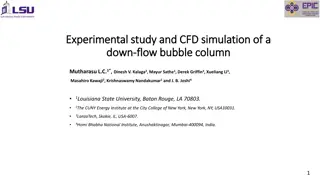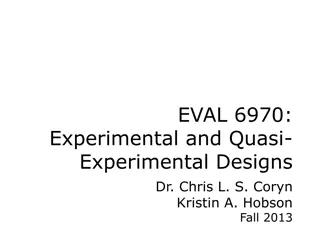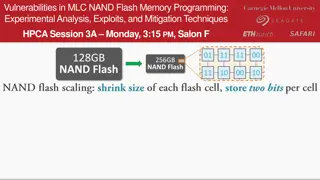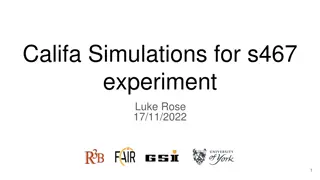Introduction to Experimental Economics by John Hey: A Comprehensive Overview
Explore the interconnected realms of Experimental Economics and Behavioral Economics through the insightful lectures of John Hey, an Emeritus Professor at the University of York. Discover the methodology of testing economic theories for validity and the practical applications of experimental economi
1 views • 58 slides
Insights on Experimental ASF Vaccines in Pig Studies
The research conducted by Prof. Jishu Shi and his team at Kansas State University delves into the safety and efficacy testing of experimental African Swine Fever (ASF) vaccines using pigs as the model. Various vaccines, including DNA vaccines and live attenuated viruses, were tested against differen
4 views • 13 slides
Approaches for Impact Assessment at Centurion University, India
Various approaches for impact assessment include Experimental Design, Quasi-Experimental Design, Before-After Comparison, Counterfactual Analysis, Cost-Benefit Analysis, Qualitative Methods, and Mixed Methods. These methods help evaluate the effectiveness and efficiency of interventions by measuring
0 views • 4 slides
Understanding Experimental Design Principles
Explore the key elements of experimental design, from defining clear objectives to controlling for variation. Learn about the consequences of poor design and the importance of factors like replication and variables. Enhance your understanding of statistical analysis and the principles of a well-desi
0 views • 15 slides
Understanding Nonexperimental and Quasi-experimental Studies
Nonexperimental and quasi-experimental studies resemble experiments but lack random assignment, making them valuable for group comparisons without establishing causation. This type of research design looks at differences between groups that already exist, focusing on group differences rather than ca
1 views • 35 slides
Design of Experiment in Animal Genetics & Breeding: Principles and Methods
Biostatistics and computer applications play a key role in the design of experiments in animal genetics and breeding. Proper allotment of treatments to experimental units is crucial to study treatment effects accurately. Designing experiments helps in maximizing information from available resources,
0 views • 37 slides
Understanding Experiments in Research: Observation vs. Experimentation
Observation and experiments are two crucial methods in research. An observational study involves observing and measuring variables without influencing responses, while an experiment deliberately applies treatments to measure responses. Confounding variables can affect the results, and factors like e
0 views • 13 slides
Real-time Experimental Lightning Flash Prediction Report
This Real-time Experimental Lightning Flash Prediction Report presents a detailed analysis of lightning flash forecasts based on initial conditions. Prepared by a team at the Indian Institute of Tropical Meteorology, Ministry of Earth Sciences, India, the report includes data on accumulated total li
0 views • 6 slides
Understanding Experimental Psychology: Designs and Control Issues in Research
This content delves into the basics of experimental research, focusing on different types of experimental designs and control issues. It covers between-group and within-group designs, discussing advantages and disadvantages, as well as methods for controlling for nonequivalence. The importance of ra
0 views • 26 slides
Understanding ANOVA in Experimental Design
In this educational content, we delve into the key concepts of ANOVA (Analysis of Variance) in experimental design. Topics covered include the necessary assumptions for conducting one-way ANOVA, the importance of testing factors in two-way ANOVA, various types of sum of squares, comparisons between
2 views • 15 slides
Understanding Probability: Experimental and Theoretical Concepts
Probability is the measure of the likelihood of an event happening, with experimental and theoretical probability being key concepts. Experimental probability involves determining probabilities through experience or experiments, while theoretical probability can be calculated without prior experienc
2 views • 23 slides
Review of Boiling Water Experiment - Analysis and Feedback
A detailed review of a boiling water experiment conducted in Greece, analyzing the presentation of theories, experiments, and results. The reporter's lack of theoretical basis and experimental details was highlighted, while the opponent raised insightful questions and corrections. Emphasis was place
3 views • 10 slides
HRRR Experimental Smoke Data Analysis
This content showcases experimental data from HRRR-SMOKE, focusing on surface visibility in miles and vertically integrated smoke levels in mg/m2. The images provide insights into the spatial distribution of smoke and visibility conditions, potentially useful for monitoring air quality and assessing
0 views • 4 slides
Analyzing Experimental Design with One-Factor and Two-Factor GLMs
Comparing the experimental designs of one-factor (1-way ANOVA) and two-factor GLMs, this content explores biological questions that can be answered through the analysis of multiple factors simultaneously in experiments. It discusses sample sizes, drug treatments, factor levels, and concentration var
1 views • 13 slides
Analysis of Absorption Properties of Conjugated Dyes
The analysis focuses on the absorption properties of conjugated dyes such as 1,1-diethyl-2,2-cyanine iodide (red), 1,1-diethyl-2,2-carbocyanine iodide (blue), and 1,1-diethyl-2,2-dicarbocyanine iodide (turquoise). It involves calculating lambda max for each dye based on a particle in a box model, co
0 views • 15 slides
Quiz Review on Scientific Method and Graphing
Explore a quiz review covering topics related to scientific method, graphing, and experimental design. Understand key concepts such as hypothesis, scientific law, theory, variables, and experimental control through detailed questions and images. Test your knowledge on laboratory safety, inferences,
0 views • 14 slides
Insights into LHC Experimental Physics: Lecture Highlights and Challenges
Delve into the world of experimental physics at LHC with lectures by Jon Butterworth at University College London in September 2016. Topics covered include accelerators, detectors, principles, and digressions, along with discussions on triggers, multi-level trigger systems, and collision selection m
0 views • 26 slides
Analysis of Resolution and Residuals in Experimental Data
This document presents an analysis of experimental data including resolution figures, residuals from fitting, and positional jitter. It explores single point analysis, charge references, and resolution as a function of sample number. The data is thorough and detailed, providing insights into the acc
0 views • 13 slides
Experimental Data Analysis Report
This report covers various aspects of experimental data analysis at the research facility, including the status of INGRID, DAQ, neutrino event rate, beam center stability, event timing, and a general summary with visual representations. The efficiency of data taking, delivery and recording of spills
0 views • 6 slides
Understanding Quantitative Research Designs in Nursing
Delve into the world of quantitative research in nursing, exploring different research designs and the concept of causality. Learn about experimental, quasi-experimental, and non-experimental designs, as well as the characteristics of experimental design like manipulation, control, and randomization
0 views • 22 slides
Design and Analysis of Experiments in STAT 337 with Ruba Alyafi
Investigate the principles of experimental design, randomization, replication, and blocking in the context of STAT 337 with instructor Ruba Alyafi. Explore topics such as sampling distributions, point estimators, population inference, and more through practical applications and assignments. Dive int
0 views • 40 slides
Quasi-Experimental and Interrupted Time-Series Designs Overview
Explore the various quasi-experimental designs, control groups, pretests, and outcome patterns in research methodologies. Understand the implications of different outcome patterns on causal interpretation and validity threats in experimental studies.
0 views • 31 slides
Experimental Analysis of Capillary Diameter in Paper and Textile Fabric
Conducted by a team named RFMS, the experiment aimed to estimate the diameter of capillaries in paper and textile fabric through experimental methods. The theory analysis lacked clarity, but the experiment was well-structured, exploring the effects of temperature and density on capillary behavior. T
0 views • 7 slides
Understanding Experimental Design in Biology
Explore key concepts in experimental design in biology through clicker questions focusing on hypotheses, variables, control groups, and experimental groups. Learn how scientists test hypotheses and analyze results to draw valid conclusions in biological studies.
0 views • 15 slides
Issues and Tests in Data Analysis at IHEP Experimental Center
Data analysis issues and tests were found by Tingxuan Zeng at the TDAQ Group within the Experimental Center at IHEP. Various issues were identified during the last data taking session, including discrepancies in GEMDC packet counts, incorrect packet lengths, and buffer pile-up. Analysis and testing
0 views • 4 slides
Compilation and Evaluation of Experimental Data for Nuclei in Z=2-28 Region
Completed compilation and evaluation of experimental Pn and half-lives for nuclei in the Z=2-28 region, led by Balraj Singh at McMaster University. The work involved preparing lists of neutron-rich nuclides, identifying potential emitters, analyzing available experimental data for 1n, 2n, 3n, and 4n
0 views • 20 slides
Advances in Ceramic Composite Property Modeling and Experimental Characterization
European research focuses on advanced modeling of C/C, C/SiC, and SiC/SiC composites for aerospace and nuclear applications, with an emphasis on correlating simulations with experimental validation. Laboratories are progressing towards a multiscale approach, integrating micro/nanomechanical characte
0 views • 5 slides
What Motivates Paternalism? An Experimental Investigation
Centuries of normative debate on paternalism have resulted in its ubiquity in various aspects of society, from consumer protection to safety regulations. However, there is a scarcity of empirical studies on the motivations behind paternalistic interventions. This experimental investigation delves in
0 views • 12 slides
Understanding Experimental Studies: Intervention, Characteristics, and Measurements
Experimental studies involve the investigator assigning exposures and following subjects to observe disease development. Different types of experimental studies exist, such as preventive and therapeutic types, each with its limitations, including ethical concerns and challenges in recruiting subject
0 views • 13 slides
Understanding Research Methods and Data Analysis
This review covers topics such as experimental classification, the comparison of non-experimental and experimental research, software features like JMP and SPSS, outlier handling in data analysis, and levels of measurement in statistical analysis.
0 views • 13 slides
Statistical Analysis of Treatment Means in Experimental Studies
The content discusses various statistical methods to analyze treatment means in experimental studies, including KNNL models, main effects plots, inference for individual treatment means, comparing two treatment means, and contrasts among treatment means. It covers topics such as parameter estimation
0 views • 25 slides
Vietnam Neutrino School Overview
Vietnam School on Neutrino is an annual event started in 2017 to promote experimental neutrino physics in Vietnam. Led by Prof. Jean Tran Thanh Van, the school focuses on lectures, software and hardware training, group works, and excursions. With a mix of students from various countries, the aim is
0 views • 7 slides
Analysis of Slider-Crank Mechanism and Experimental Data
Slider-crank mechanism analysis involves understanding the transformation of input motion into desired output motion. This mechanism consists of a crank, coupler, slider, and ground link, converting circular motion into linear motion. Experimental procedures involve setting crank angles and recordin
0 views • 6 slides
Experimental Study and CFD Simulation of a Down-flow Bubble Column
This study and simulation focus on the experimental setup, measurement techniques, and results of a down-flow bubble column. It explores novel features such as inverted bubbly flow, micro-bubble generation, and gas injection. Detailed analysis includes axial and radial variations of volumetric gas h
0 views • 25 slides
Understanding Experimental and Quasi-Experimental Designs
Explore the foundations of experimental and quasi-experimental designs, delving into causal relationships, counterfactual reasoning, and the importance of validating statistical and internal conclusions. Learn about causes, effects, and the complexity of determining causation in research. Discover R
0 views • 46 slides
Understanding Probability: Learning Outcomes and Examples
This content delves into the study of probability, covering topics such as representing probabilities of simple and compound events, calculating relative frequencies, multi-step chance experiments, theoretical and experimental probabilities. It explains concepts like chance experiments, sample space
0 views • 31 slides
Experimental Analysis of Vulnerabilities in MLC NAND Flash Memory Programming
This session at HPCA explores the experimental analysis, exploits, and mitigation techniques related to vulnerabilities in MLC NAND flash memory programming. The presentation delves into the risks associated with NAND flash memory, such as data corruption and errors during read operations. It discus
0 views • 10 slides
Understanding Experimental Studies in Epidemiology
Epidemiological studies and experimental studies play vital roles in understanding cause-and-effect relationships in research. Experimental studies involve manipulating independent variables and measuring dependent variables, with categories such as true experimental, quasi-experimental, and pre-exp
0 views • 22 slides
Califa Simulations and Experimental Observations in Nuclear Physics Research
Exploring nuclear physics research through Califa simulations and experimental observations with a focus on PID gating, clustering algorithms, beam settings, and Ca isotopes chain gating. The study involves simulating events on CH2 targets, analyzing clustering effects, and observing opening angles
0 views • 10 slides
FY25 LBS Lab OMEGA/OMEGA EP Proposed Campaign
Proposed campaign in FY25 by the LBS Lab to measure specific deliverables, compare results with experimental and theory PIs, collaborate with others, and assess technical issues such as target fabrication feasibility. The campaign involves motivation, relevant milestones, previous/simulated results,
0 views • 6 slides


